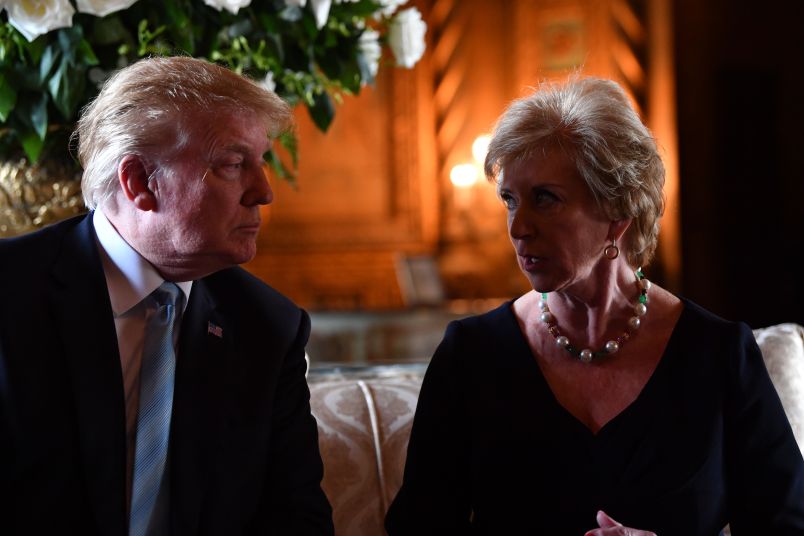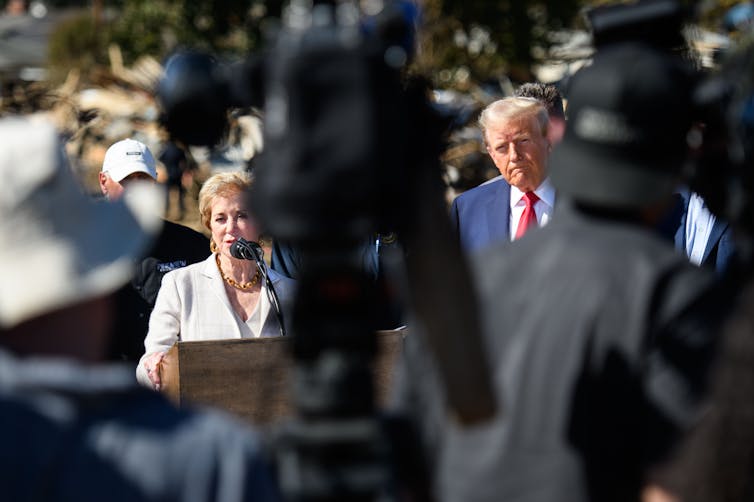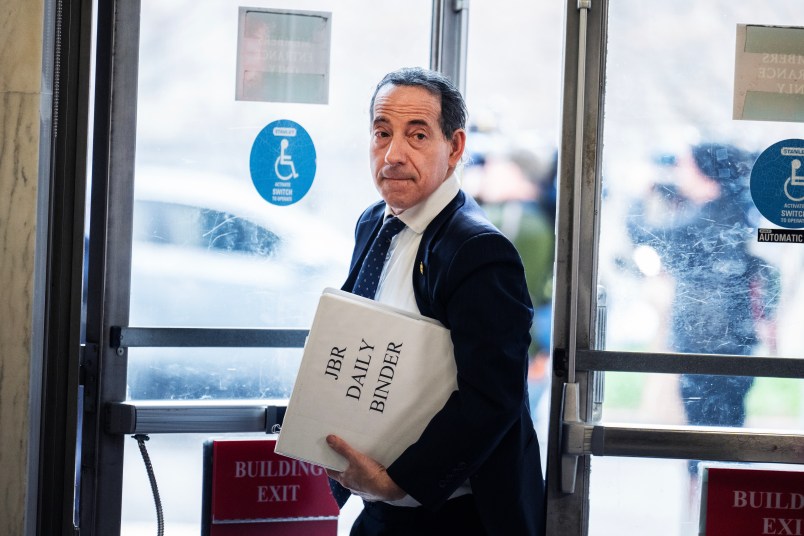
By Kevin Welner
TPM
November 26, 2024
This article is part of TPM Cafe, TPM’s home for opinion and news analysis. It was originally published at The Conversation.
In her role as former chief executive of World Wrestling Entertainment, Linda McMahon oversaw an enterprise that popularized the “takedown” for millions of wrestling fans. But as President-elect Donald Trump’s nominee for secretary of education, the Trump loyalist may be tasked with taking down the very department Trump has asked her to lead.
If Trump does dismantle the Department of Education as he has promised to do, he will have succeeded at something that President Ronald Reagan vowed to do in 1980. Just like Trump, Reagan campaigned on abolishing the department, which at the time was only a year old. Since then, the Republican Party platform has repeatedly called for eliminating the Education Department, which oversees a range of programs and initiatives. These include special funding for schools in low-income communities – known as Title I – and safeguarding the rights of students with disabilities.
As an education policy researcher who has studied the federal role in addressing student-equity issues, I see the path to shuttering the department as filled with political and practical obstacles. Republicans may therefore opt to instead pursue a series of proposals they see as more feasible and impactful, while still furthering their bigger-picture education agenda.
To better understand how the proposal to eliminate the Education Department would fit within the larger educational agenda of the incoming administration, I believe it’s helpful to revisit the history of the Education Department and the role it has played over the past five decades.
Department of Education history and roles
By the time Congress established the department in 1979, the federal government was already an established player in educational policy and funding.
For instance, the Higher Education Act of 1965 began the federal student loan program. In 1972, Congress created the Basic Educational Opportunity Grant, the predecessor program to today’s Pell Grants. The G.I. Bill of 1944, which, among other things, funded higher education for World War II veterans, preceded them both.
At the K-12 level, federal involvement in vocational education began with the Smith-Hughes Act of 1917. Federal attention to math, science and foreign language education began in 1958 with the National Defense Education Act.
Two laws passed during the Lyndon Johnson administration then gave the federal government its modern foothold in education: the Civil Rights Act of 1964 and the Elementary and Secondary Education Act of 1965. The 1964 law provided antidiscrimination protections enforced by the Education Department’s Office for Civil Rights. The 1965 law, which is currently reauthorized as the Every Student Succeeds Act of 2015, includes Title I, which sends extra funding to schools with high populations of low-income students.
In 1975, Congress added the law currently known as the Individuals with Disabilities in Education Act, or IDEA. The law helps schools provide special education services for students with disabilities. IDEA also sets forth rules designed to ensure that all students with disabilities receive a free and appropriate public education.
Department had early Republican support
When Congress created the Education Department, it divided the former Department of Health, Education, and Welfare into two agencies. One was the Education Department. The other was Health and Human Services, also known as HHS. Although President Jimmy Carter championed the move, it was bipartisan. The Senate bill to create the new department had 14 Republican co-sponsors.
Within a year, however, support for and opposition to the Education Department had become strongly partisan. Reagan campaigned on eliminating what he referred to as “President Carter’s new bureaucratic boondoggle.”
Those bureaucracies, however, existed before Carter and the new department. The only major addition was the Office of Educational Research and Improvement, which served primarily as the research arm of the Education Department. That office has since been replaced by the Institute of Education Sciences.
To dissolve the Education Department, both houses of Congress would have to agree, which is unlikely. In 2023, an amendment was proposed in the House to shut down the department. It failed by a vote of 161-265, with 60 Republicans joining all Democrats in opposing the measure.
Even assuming that sufficient pressure were exerted on Republicans in 2025 to garner almost complete Republican House support, the bill would likely need 60 votes in the Senate to overcome a filibuster – meaning that at least seven Democrats would have to support termination.
But what would such termination entail? The department’s functions and programs would need to be assigned to new institutional homes, since terminating a program’s department doesn’t terminate the program. That said, this shuffling process would likely be complicated and chaotic, harming important programs for K-12 and university students.
While details about what reorganization would look like remain to be seen, one option was proposed by Trump during his first term: merging the Education Department with the Labor Department.
Another approach is set forth in the Heritage Foundation’s Project 2025, a detailed policy blueprint that, among other things, specifies landing places for the Education Department’s major functions and programs. A CNN review found that over 100 people involved with Project 2025 worked in the first Trump administration.
The Project 2025 blueprint calls for the lion’s share of programs, including Title I and IDEA, to be moved to HHS – which already administers Head Start. Most vocational education programs would be moved to the Labor Department. The Office for Civil Rights would be moved to the Justice Department. And the Pell Grant program and the student loan program would be moved to the Treasury Department.
Part of a larger education agenda
In the scenario where existing Education Department programs are transferred to other agencies, those programs could continue without being closed or drastically cut. But Trump and Project 2025 have articulated a set of plans that do make radical changes. Trump has said he supports a federal voucher – or a “universal school choice” – plan, likely funded through federal tax credits. This idea is set forth in the proposed Educational Choice for Children Act, which is backed by Project 2025. Perhaps tellingly, Trump’s announcement of the McMahon nomination highlighted school-choice goals; it did not mention abolishing the department.

Project 2025 also lays out other changes and program cuts, including ending the Head Start early childhood education program and phasing out Title I over 10 years, and converting most IDEA funds into a voucher or “savings account” for eligible parents.
Beyond these initiatives, Trump’s campaign shared his plan to target a variety of culture-war issues. This includes cutting federal funding for any school or program that involves “critical race theory, gender ideology, or other inappropriate racial, sexual, or political content onto our children.”
What we can expect
My expectation is that the Trump administration’s most likely and immediate changes will be in the form of executive orders that alter how laws will be implemented. For example, Trump may use an executive order to remove protections for transgender students.
Subsequently, I also expect some congressional budgetary changes to education programs. Based on past votes, I expect overwhelming but not universal Republican congressional support for Trump’s educational agenda. Using the budget reconciliation process, which circumvents the filibuster, a majority vote can make changes to revenue or spending. Accordingly, Congress may agree to program cuts and perhaps even to move some programmatic funding into education vouchers for individual parents.
As for closing the Education Department, which probably would not qualify for the reconciliation process, Secretary-designate McMahon may find that takedown to be a politically difficult one to achieve.
This article is republished from The Conversation under a Creative Commons license. Read the original article.


















